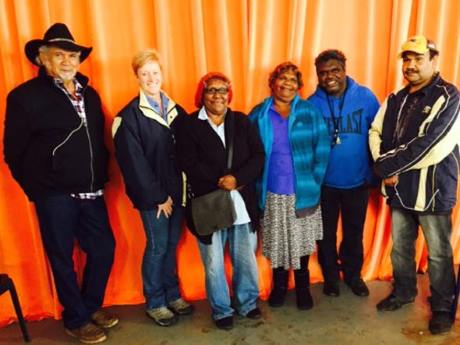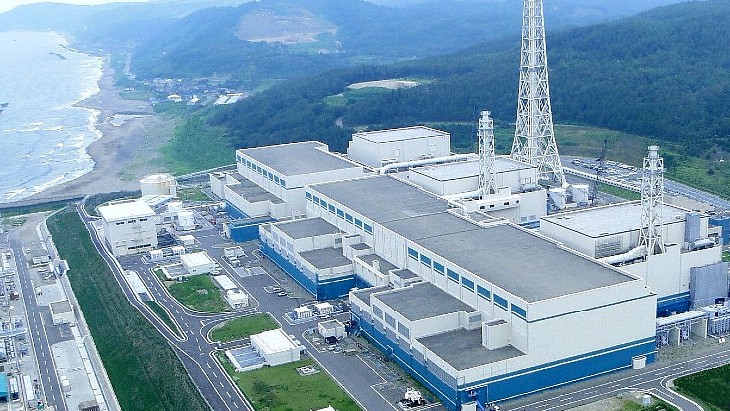Toro Energy has signed a mining agreement with the Wiluna People, the traditional owners of land including uranium deposits the company proposes to mine as part of the Wiluna project in Western Australia.
 |
| Representatives of Toro and the Wiluna People: L-R Alan Ashwin, Vanessa Guthrie, Dallas Harris, Vera Armstrong, Kelman Patch, Victor Ashwin (Image: Toro) |
The agreement is the culmination of over seven years of relationship-building between the Wiluna People and Toro, and was ratified in a community meeting in Wiluna. The Tarlka Matuwa Piarku Aboriginal Corporation (TMPAC) holds the native title on trust on behalf of the Wiluna People, under federal determinations that took effect in January 2015. The title covers almost 48,000 square kilometres of land and water and includes three of the four uranium deposits - Millipede, Centipede and Lake Way - making up Toro's project.
The agreement's primary objectives are to maintain and develop a mutually beneficial long-term relationship between the Wiluna People and Toro; to ensure that the effects of Toro's activities on the native title holders' rights and interests, on Wiluna County and on the environment are minimised; to ensure the Wiluna People are kept informed of and consulted about Toro's activities; to provide compensation for impacts on the native title holders' rights and interests; and to provide funding and other benefits to the native title holders to protect the country and maintain traditional law and culture. The agreement also recognises opportunities for a range of business and employment initiatives.
TMPAC chairman Kelman Patch said the agreement provided opportunities for the Wiluna People as well as protecting their cultural heritage. "Our people have been able to negotiate a strong agreement to protect their interests and to pursue benefits and opportunities from this project," he said.
Toro has already provided funding to build the capacity of the Wiluna People to undertake environmental and radiation monitoring, and the two parties hope to extend this into areas such as groundwater monitoring, mine closure and rehabilitation. As well as providing ongoing access to information and assurance about project impacts, this approach also provides opportunities for the Wiluna People to establish business activities that could service both the Wiluna project and other mines in the region, Toro said.
Toro managing director Vanessa Guthrie said it was important for the Wiluna People to understand how uranium mining might affect their land, culture and health and described the agreement as a "most important" step in the project's progress. She said the company had provided the Wiluna People with the means to secure their own independent advice throughout the negotiation of the mining agreement. "As a result, they have reached a position where they can give full and informed consent to Toro's development proposals on their land," she said.
As well as the three deposits covered by the Wiluna People's native title land, the Wiluna project also includes the Lake Maitland deposit over which no native claim has yet been established but over which the Barwdigee People claim an interest. Toro said it has been engaging with the Barwidgee People.
Current plans envisage mining taking place first at Centipede and Millipede, with mining at Lake Maitland beginning six years later, and Lake Way being minded after completion of Lake Maitland. The total project life is about 20 years, and all ore would be processed in a plant to be built near the Centipede and Millipede deposits. Centipede and Lake Way, and the associated processing facility, received environmental approvals from the state and federal governments in 2013.
Researched and written
by World Nuclear News





_91467.jpg)
_47120.jpg)
_16439.jpg)





